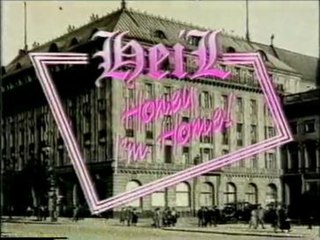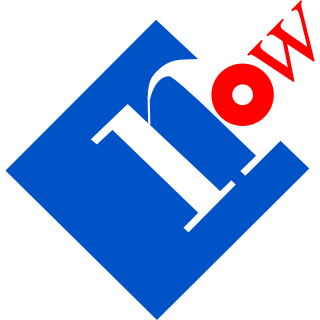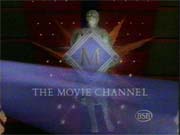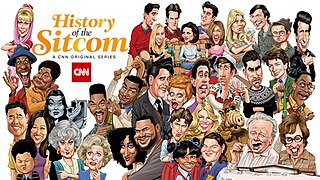A British sitcom or a Britcom is a situational comedy programme produced for British television.
The year 1969 in television involved some significant events. Below is a list of television-related events in 1969.
The year 1970 in television involved some significant events. Below is a list of notable television-related events in that year.
The year 1968 in television involved some significant events. Below is a list of television-related events in 1968.
Television broadcasts in the United Kingdom began in 1932, however, regular broadcasts would only begin four years later. Television began as a public service which was free of advertising, which followed the first demonstration of a transmitted moving image in 1926. Currently, the United Kingdom has a collection of free-to-air, free-to-view and subscription services over a variety of distribution media, through which there are over 480 channels for consumers as well as on-demand content. There are six main channel owners who are responsible for most material viewed.

British Satellite Broadcasting plc (BSB) was a television company, based in London, that provided direct broadcast satellite television services to the United Kingdom. It started broadcasting on 25 March 1990. The company was merged with Sky Television plc on 2 November 1990 to form British Sky Broadcasting.
U&Gold is a British premium television channel from the UKTV network that was launched in late 1992 as UK Gold before it was rebranded UKTV Gold in 2004. In 2008, it was split into current flagship channel Gold and miscellaneous channel, W, with classic comedy based programming now airing on Gold, non-crime drama and entertainment programming airing on W, and quiz shows and more high-brow comedy airing on Dave. It shows repeats of classic programming from the BBC, ITV and other broadcasters. Every December, from 2015 until 2018, the channel was temporarily renamed Christmas Gold. This has since been discontinued, although the channel still continues to broadcast Christmas comedy.
Sky One was a British pay television channel operated and owned by Sky Group. Originally launched on 26 April 1982 as Satellite Television, it was Europe's first satellite and non-terrestrial channel. From 31 July 1989, it became Sky One and broadcast exclusively in the United Kingdom and Ireland as British Sky Broadcasting's flagship channel. It existed until 1 September 2021, when it closed down as part of a restructuring with its EPG position taken by Sky Showcase and much of its content library moved to Sky Max.

Frank Thornton Ball, professionally known as Frank Thornton, was an English actor. He was best known for playing Captain Peacock in the TV sitcom Are You Being Served? and its sequel Grace & Favour and as Herbert "Truly" Truelove in TV sitcom Last of the Summer Wine.
Classics is an Australian cable and satellite channel that specializes in showing television series and ad-free classic movies, themed movie nights and miniseries from the 1950s, 1960s, 1970s, 1980s and 1990s.

Heil Honey I'm Home! is a British sitcom, written by Geoff Atkinson and produced in 1990, which was cancelled after one episode. It centres on Adolf Hitler and Eva Braun, who live next door to a Jewish couple, Arny and Rosa Goldenstein. The show spoofs elements of mid-20th century American sitcoms and is driven by Hitler's inability to get along with his neighbours. It caused controversy when broadcast and has been called "perhaps the world's most tasteless situation comedy".

The Power Station was a British television channel that was operated by British Satellite Broadcasting. It was a dedicated music channel.
Analogue television in the United Kingdom includes terrestrial, satellite and cable services that were broadcast using analogue television signals. Following the termination of Virgin Media's analogue cable television service in Milton Keynes in November 2013, all television in the United Kingdom is broadcast in digital only.

Sky Television plc was a public limited company which operated a nine-channel satellite television service, launched by Rupert Murdoch's News International on 5 February 1989. Sky Television and its rival British Satellite Broadcasting suffered large financial losses, and merged on 2 November 1990 to form British Sky Broadcasting. A programming merger took effect on 1 December 1990.

Galaxy was a short-lived British satellite television channel, owned and operated by British Satellite Broadcasting.

Now was a British television channel transmitted as part of the British Satellite Broadcasting service during 1990.

The Movie Channel was a British television service which only aired movies. Launched on British Satellite Broadcasting, The Movie Channel was a predecessor of some of the Sky Movies channels, having survived the 1990 merger with Sky Television, another satellite service launched by Rupert Murdoch's News International.
This is a timeline of the history of Sky Television.
This is a timeline of the history of Sky Cinema.

History of the Sitcom is an eight-part CNN documentary television series that traces the development of the American situation comedy show from the 1950s to the 21st Century. The show features 184 interviews with creatives, actors and directors including Norman Lear, Mel Brooks, Yvette Lee Bowser, Marta Kauffman, and Carl Reiner. The series follows a similar format of the CNN Original Series The History of Comedy.








